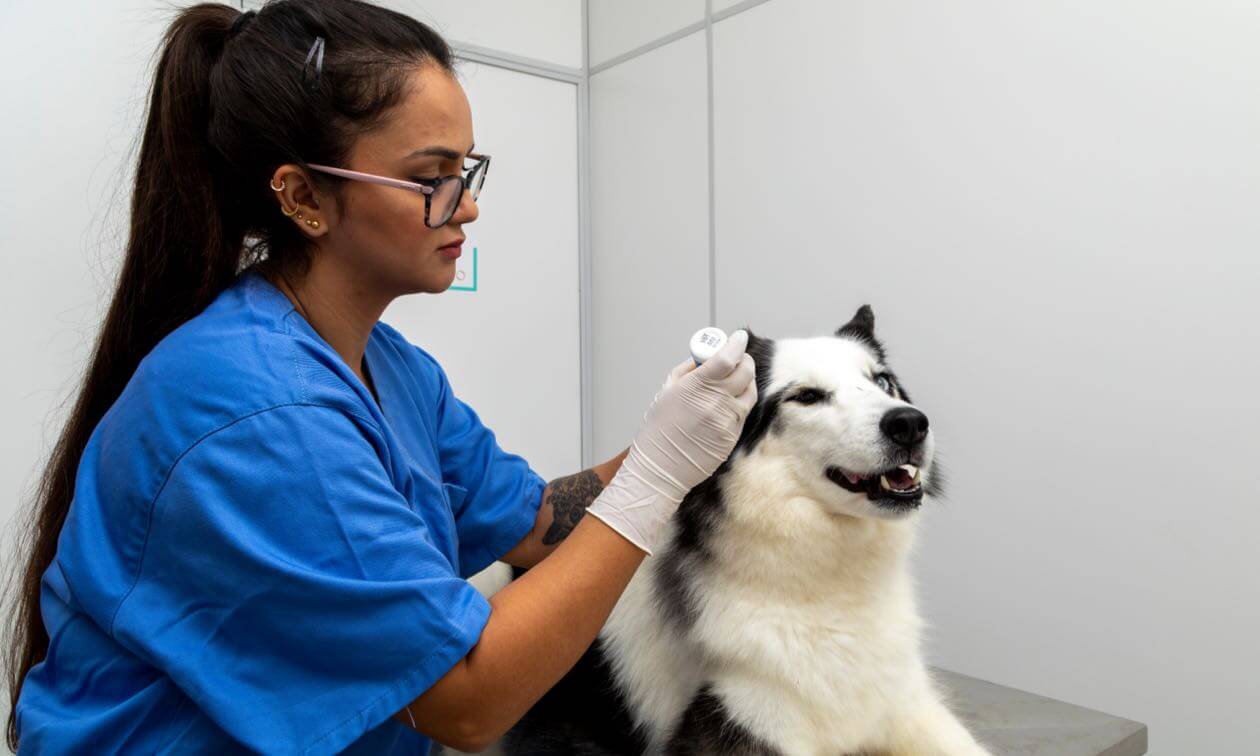What to Expect Throughout an Extensive Pet Health Checkup at Your Neighborhood Vet
What to Expect Throughout an Extensive Pet Health Checkup at Your Neighborhood Vet
Blog Article
Vaccination Guidelines From Your Relied On Vet
Inoculation guidelines offered by your trusted veterinarian play an important function in securing your pet's health and wellness and well-being. Core vaccinations are basic for all animals, while non-core vaccines can be customized to certain way of lives and environmental direct exposures. Recognizing the subtleties of vaccination timetables, which begin as very early as 6 to eight weeks, is vital for optimal protection. In addition, addressing common mistaken beliefs surrounding injections can even more improve animal owners' confidence in these preventive measures. As we check out these vital facets, it comes to be significantly clear why normal assessments with your vet are vital for informed decision-making.

Significance of Inoculations
Inoculations play a pivotal duty in protecting pet dogs against an array of preventable illness. By stimulating the immune system to identify and fight details pathogens, injections significantly minimize the occurrence of infectious illness that can influence an animal's wellness and longevity. Not only do inoculations shield individual animals, yet they also contribute to herd immunity, consequently reducing the general occurrence of conditions in the pet population.
Timely inoculations help to reduce the spread of conditions such as rabies, parvovirus, and distemper, which can have extreme repercussions for both pet dogs and humans. In addition, inoculations are frequently a demand for boarding facilities, grooming services, and pet dog parks, making them crucial for those that desire to mingle their pets.

Core Injections for Family Pets
While the certain vaccination requirements of animals can differ based upon individual elements, core vaccines are generally advised to protect versus one of the most significant and typical illness (Emergency Vet). Core injections are those regarded necessary for all family pets, despite their way of living or geographical place, as they protect versus very infectious and potentially deadly health problems
For canines, the core vaccinations include those for canine distemper, parvovirus, adenovirus (hepatitis), and rabies. Adenovirus can result in liver condition, while rabies is a zoonotic disease that postures a threat to both pet dogs and humans.
In cats, core injections incorporate feline panleukopenia, feline calicivirus, feline herpesvirus (rhinotracheitis), and rabies. Feline panleukopenia is a highly contagious viral illness that influences the body immune system and intestines. Calicivirus and herpesvirus are significant factors to upper respiratory infections in felines, while rabies stays a vital worry for public wellness.
Speak with your veterinarian to ensure your pet dogs obtain their core inoculations on time.
Non-Core Vaccines Explained
Non-core vaccines are tailored to deal with certain dangers connected with a pet dog's way of living, direct exposure, and setting to specific illness. Unlike core vaccinations, which are universally suggested for find more all pets, non-core vaccines are considered based on specific conditions. These vaccinations are especially essential for animals that might come across distinct virus because of their geographical place, travel routines, or tasks.
Examples of non-core vaccinations consist of those for Bordetella bronchiseptica, which is linked to kennel coughing, and Lyme illness, brought on by ticks. Pets that regularly communicate with other pets, such as those in boarding facilities, pet parks, or grooming settings, might take advantage of Bordetella vaccination. If you live in a location where Lyme illness is prevalent, vaccinating versus this disease can be a sensible choice for outdoor-loving pets.
Various other non-core vaccinations may consist of those for leptospirosis, canine influenza, and feline leukemia, relying on the specific danger factors present. It is vital to have a complete discussion with your veterinarian regarding your pet's way of life and the possible need for these injections, making certain a tailored vaccination technique navigate to these guys that ideal safeguards your fuzzy buddy.
Inoculation Schedule Review

As family pets grow, it is very important to follow the suggested booster vaccinations. Vet Enterprise. For adult pets, core vaccinations are generally given each to 3 years, depending upon the particular vaccine and neighborhood guidelines. Non-core injections may be suggested based upon lifestyle factors and local disease prevalence, demanding a customized technique
Routine veterinary exams are critical for updating inoculation timetables. Your veterinarian can offer guidance on one of the most proper immunizations for your family pet, factoring in age, wellness status, and ecological dangers. By remaining positive and educated, animal proprietors can guarantee their furry companions obtain efficient and timely inoculations, therefore safeguarding their health and wellness and wellness throughout their lives.
Common Misconceptions Regarding Vaccines
Mistaken beliefs about pet inoculations can cause complication and unwillingness amongst family pet proprietors relating to the immunization procedure. One prevalent misconception is that vaccines are unneeded for indoor family pets. While it's real that interior pets deal with reduced threats, they are not entirely immune to diseases, as microorganisms can be presented via numerous means, including human clothes and various other pets.
One more misconception is that injections can cause the illness they intend to prevent. Actually, many vaccines include inactivated or attenuated pathogens, which can not cause disease in healthy pets. Some pet dog proprietors additionally think that their pet dogs need to not visit site be immunized if they are currently healthy; however, vaccinations are a proactive procedure that aids stop the start of ailment.
Furthermore, numerous family pet owners are afraid that vaccinations will certainly lead to long-lasting health complications. The advantages of vaccination-- shielding family pets from possibly life-threatening conditions-- much outweigh the threats.
Final Thought
In recap, adherence to vaccination standards is crucial for ensuring the wellness and longevity of pets. Resolving typical misconceptions surrounding vaccinations better reinforces the significance of informed decision-making in animal treatment.
Not only do vaccinations shield individual animals, yet they likewise add to herd immunity, therefore decreasing the overall frequency of diseases in the family pet population.
Misconceptions concerning pet dog vaccinations can lead to complication and unwillingness among pet dog proprietors relating to the booster shot procedure. While it's true that interior animals face reduced dangers, they are not entirely immune to diseases, as pathogens can be introduced through numerous methods, including human garments and other pets.
Some animal owners additionally think that their pet dogs need to not be vaccinated if they are currently healthy and balanced; nonetheless, inoculations are a proactive procedure that helps stop the start of disease.
The advantages of vaccination-- protecting animals from possibly life-threatening conditions-- much surpass the dangers.
Report this page